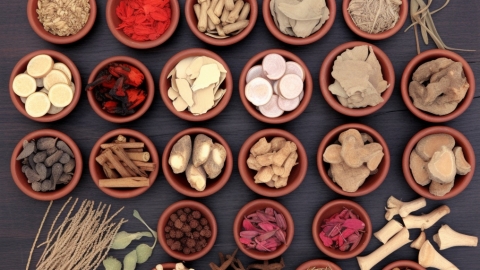Can pregnant women take traditional Chinese medicine for a cold?
If a pregnant woman catches a cold and her physical condition allows, she can generally take traditional Chinese medicine (TCM) under the guidance of a doctor. However, pregnant women should not take TCM on their own.

When a pregnant woman catches a cold, she can, under the guidance of a qualified TCM practitioner, choose some safe herbal medicines according to her individual constitution and type of cold. For example, for wind-cold感冒, she may take appropriate amounts of herbs like ginger and scallion whites, which have diaphoretic and exterior-resolving effects. For wind-heat感冒, herbs such as honeysuckle and forsythia, which clear heat and detoxify, may be selected. It is important to take medication under a doctor's supervision.
Pregnant women should not decide on their own to use TCM to treat colds during pregnancy, as TCM ingredients are complex, and different combinations and dosages can affect their efficacy and safety. Some herbs may have adverse effects such as promoting blood circulation to remove blood stasis or have toxic properties. For example, musk and leech should be strictly avoided by pregnant women. Other herbs, such as peach seed (Taoren) and safflower (Honghua), should also be used with caution during pregnancy.
If a pregnant woman's cold symptoms are mild, symptoms can usually be relieved through lifestyle adjustments and over-the-counter medications, without the need for TCM treatment. Adequate rest, increased water intake, and maintaining good indoor air circulation are beneficial for recovery.




